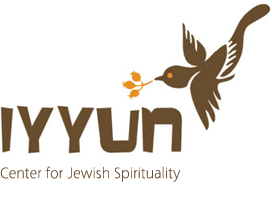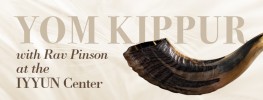The Midrash tells us that following the brutal murder of his brother Hevel, Kayin was summoned to the heavenly tribunal for judgment. After a brief deliberation, it was decreed that Kayin would be condemned to a life of wandering: “You shall become a vagrant and wanderer on earth.” Acknowledging the gravity of his iniquities and accepting his sentence, Kayin beseeched the court for mercy, asking, “Is my iniquity too great to be borne?”
Upon leaving the heavenly court, Kayin was met by Adam, his father. Seeing his son’s jubilant disposition, Adam inquired of Kayin as to what had occurred in the court. When Kayin told him what he had done and that he had left the court with a clean slate, Adam said, “Such is the power of teshuvah, and I did not know it.” He then began to sing “a Psalm, a Song for Shabbat day.” The amazing transformational potential of teshuvah aroused Adam to compose a song in honor of the sacred day of Shabbat.
Shabbat and teshuvah are both similar in that they are both liberating agents. They spiritually free the human being from the normal course of unfolding reality. Shabbat exists as a refuge in time—no matter how absorbed we may be during the course of the week, we have a sacred time of refuge, when we are able to rest and reflect. Teshuvah is a refuge in place for the soul.
If we have drifted away from God and become alienated from the true source of our soul, teshuvah gives us a space where we can find refuge. It this space we can redefine and recreate our inner self and become reborn once again.
Comments are closed.
Related Posts
Shachris: The Four Ladder Movement, Upward and Inward
As we climb the four levels of prayer upward and inward, we come more in touch with our deeper levels of soul, and they become our internal reality.
Read more...





